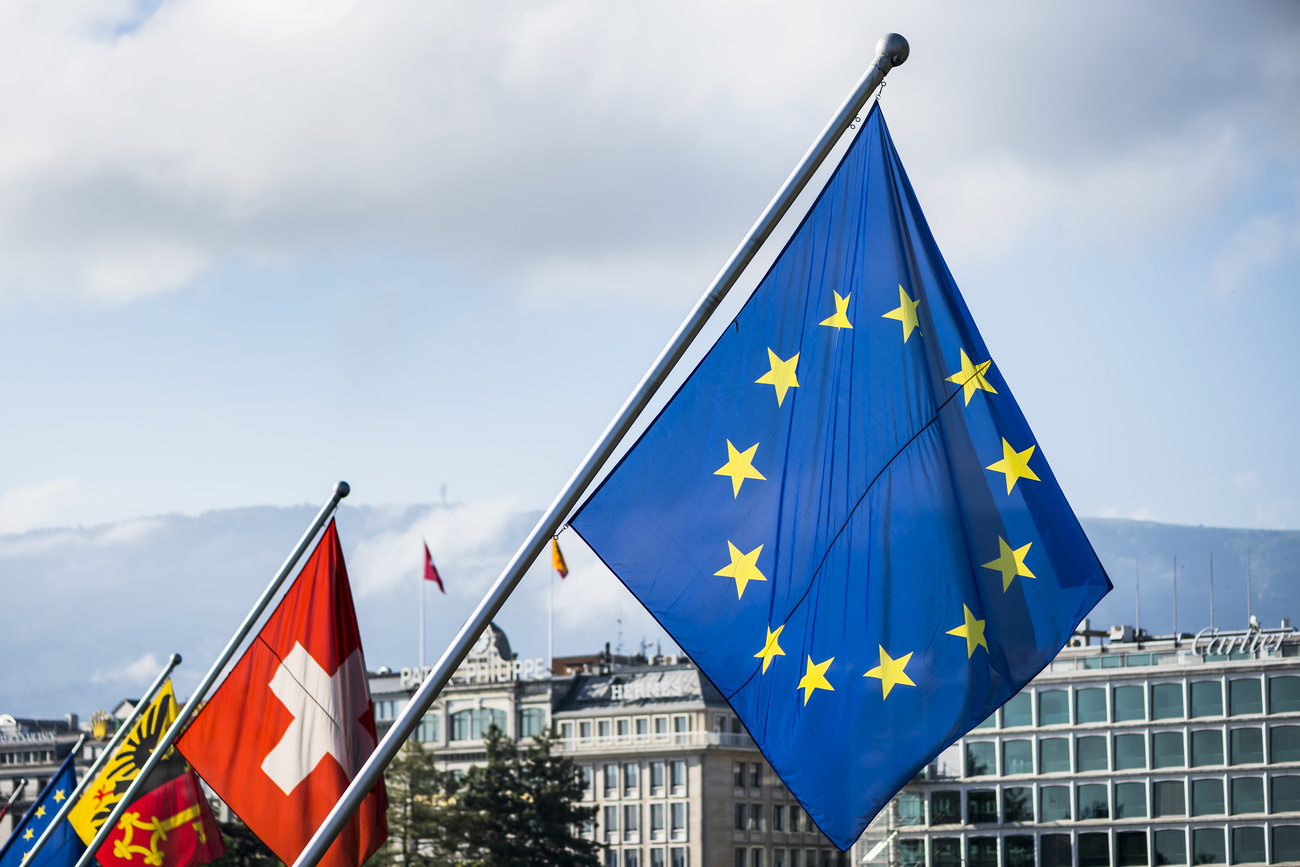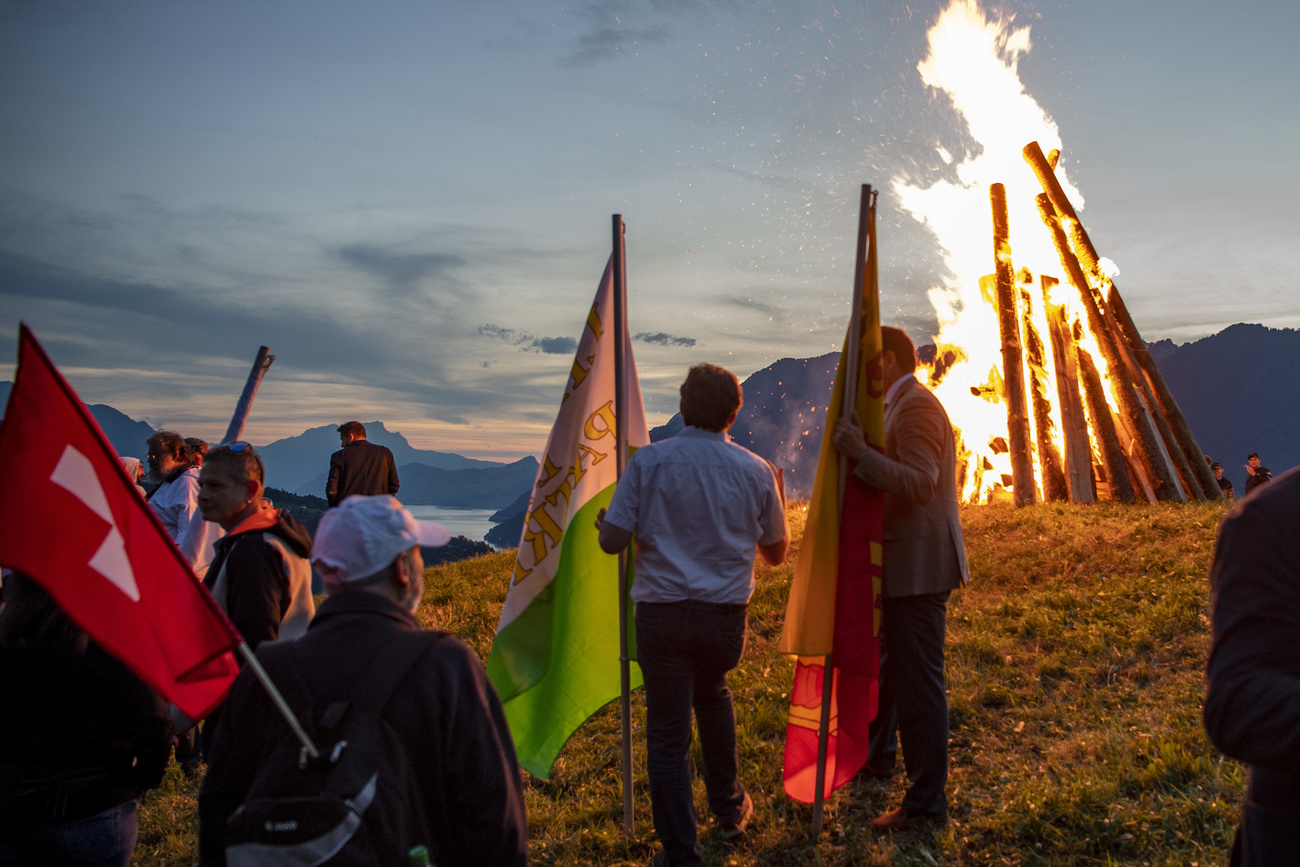
‘No comment’ from EU member states on Swiss ties

The conclusions of European Union countries regarding Switzerland, normally published every two years, have fallen off the radar in 2022 – reflecting the stasis in Bern-Brussels relations.
At a meeting of a working group of EU states this week, conclusions on Switzerland were not even on the agenda, an EU diplomat told the Keystone-SDA agency on Wednesday. The EU commission, as well as France, reportedly pushed to shelve the discussion, despite efforts by the Czech EU presidency to finalise a draft by the end of the year.
The reasons were reportedly the lack of progress in talks between Bern on Brussels on how to regulate relations in future, after long negotiations on a framework agreement broke down last year.

More
Swiss reject framework agreement deal with EU
As a rule, such conclusions are issued every two years in the form of a guiding document by EU member states, taking stock of the relationship with Switzerland and setting the lines for how to proceed in the future. The last such document now dates to 2019, at which point member states explicitly approved the political linkage of all policy dossiers with the institutional question – a linkage that the Swiss since came to dispute.
Following the demise of the framework deal, five rounds of “exploratory talks” have since taken place between Swiss and EU officials on how to proceed, with no concrete progress made. Disagreements largely centre on Swiss fears about the free movement of people and the protection of its high-salary labour market.
The current non-participation of Swiss universities and researchers in the lucrative European Horizon research programme is also controversial.
A next round of talks is planned for November 11.

More
Why is Switzerland not in the European Union?

In compliance with the JTI standards
More: SWI swissinfo.ch certified by the Journalism Trust Initiative




























You can find an overview of ongoing debates with our journalists here . Please join us!
If you want to start a conversation about a topic raised in this article or want to report factual errors, email us at english@swissinfo.ch.